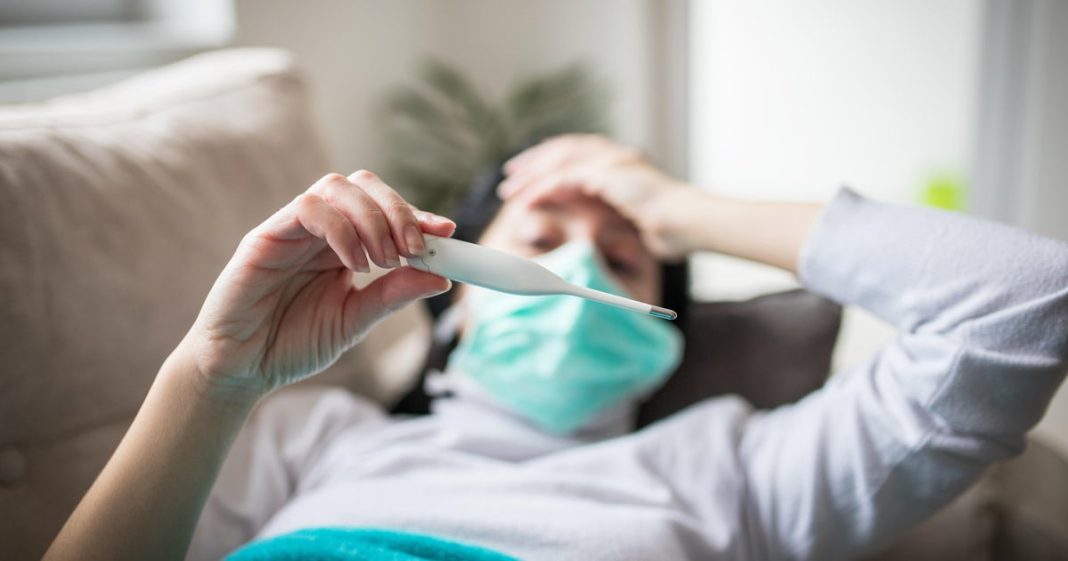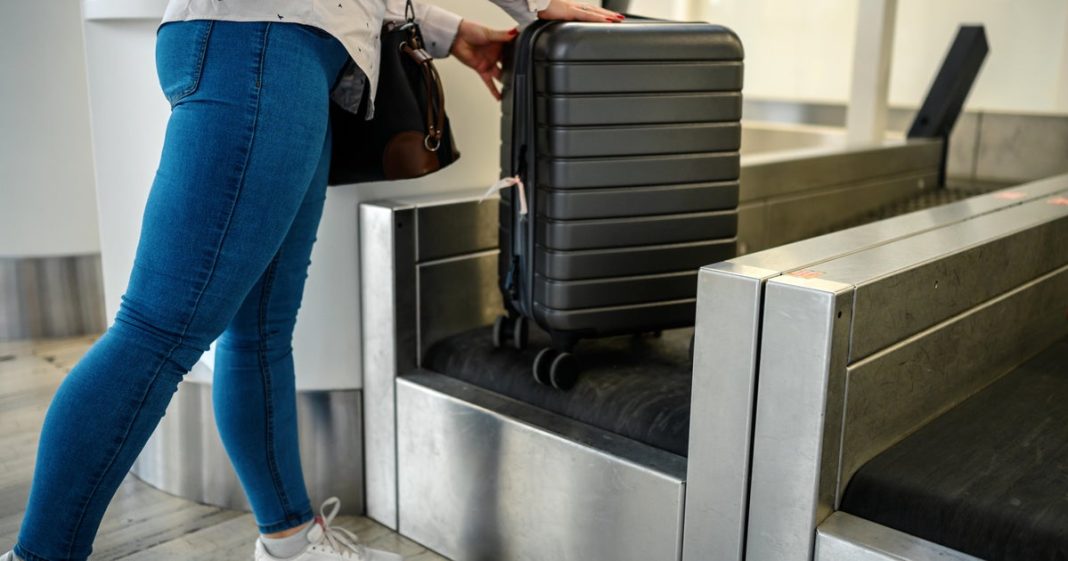Cases of the new COVID-19 variant NB.1.8.1, linked to a large surge in China, have been detected in multiple locations across the United States, according to the Centers for Disease Control and Prevention. The earliest cases in the U.S. date back to late March and early April, and were detected through a screening program at airports for arriving international travelers.
“CDC is aware of reported cases of COVID-19 NB.1.8.1 in China and is in regular contact with international partners,” a CDC spokesperson said in a statement last week.
The spokesperson said that, so far, too few U.S. sequences have been reported of NB.1.8.1 to be included in the agency’s variant estimates dashboard.
But hospitalizations abroad have raised questions about the new variant, its symptoms and more. Here’s what to know, according to experts.
New COVID variant’s symptoms
NB.1.8.1 is associated with symptoms that are “broadly similar to those seen in earlier strains of the virus,” Subhash Verma, a professor of microbiology and immunology at the University of Nevada, Reno School of Medicine, told CBS News in an emailed statement.
Commonly reported symptoms include respiratory issues such as cough and sore throat, as well as systemic effects like fever and fatigue, he said.
How dangerous is the new COVID variant?
“Data indicates that NB.1.8.1 does not lead to more severe illness compared to previous variants, although it appears to have a growth advantage, suggesting it may spread more easily,” Verma said. “In other words, it is more transmissible.”
Authorities in Hong Kong say there is no evidence that the variant, a descendant of the XDV lineage of the virus, is more severe than previous strains.
Dr. Amy Edwards, assistant professor of pediatrics at the School of Medicine at Case Western Reserve University who specializes in infectious diseases, also told CBS News there is some evidence in the lab that this variant binds more tightly to human cells, which means it is easier to transmit. But, that doesn’t mean it leads to more severe infection.
“What they’re seeing in China, Hong Kong and some other areas where this variant has really surged, is an increase in hospitalization, but that seems to be more to do with just a standard summer surge that we’ve been seeing,” Edwards explained, adding the available data is still preliminary, but that the variant “doesn’t seem to be more severe.”
2025 COVID booster shot
Despite the latest variant displaying high transmissibility, the Trump administration is planning to limit booster vaccine access to some groups.
Last week, the Food and Drug Administration said it will continue approving COVID-19 vaccine updates for seniors and those with an underlying medical condition, including pregnancy or diabetes, but will require vaccine makers to conduct major new clinical trials before approving them for wider use. The decision means many Americans without underlying conditions may not have access to updated shots this fall.
Verma said these restrictions could have several significant public health impacts.
“Although over 100 million Americans are still expected to qualify under these criteria, the administration’s decision introduces new barriers for the broader population,” he said. “One immediate concern is that the FDA’s requirement for updated clinical trials could delay access to boosters for lower-risk groups, discouraging some individuals from seeking vaccination. The new policy may also create confusion and reduce vaccination rates if people are uncertain about their eligibility or worried about insurance coverage, particularly with high-cost manufacturers planning to charge.”
Edwards said the recommendation updates remain unclear.
“Some of the language around pre-existing conditions is pretty loose,” she explained. “The other thing is, it’s not clear what variants are going to be in this year’s vaccine, especially with some question around what kind of vaccine trials are going to be allowed.”
The new COVID-19 vaccination framework was laid out by the FDA’s new leadership under Health and Human Services Secretary Robert F. Kennedy Jr., who has publicly raised doubts about vaccines.
“We had heard Secretary Kennedy say, we’re not going to take away your vaccines, we’re going to be super transparent. And in fact, what is happening is people are going to lose access to vaccines,” Dr. Céline Gounder, CBS News medical contributor and editor-at-large for public health at KFF Health News, told “CBS Mornings Plus” following the FDA’s announcement about vaccine approvals.
Are there other ways to prevent infection?
With questions about vaccine access up in the air, Edwards said there are still strategies for prevention.
“Good cough and sneezing hygiene, good hand washing, staying home if you’re not feeling well to keep other people from catching what you’ve got,” Edwards advised. “If you’re a little under the weather, but well enough to be out and about, wearing a mask.”
Despite some controversy around mask wearing, Edwards said they can prevent spread by keeping your germs to yourself.
“One of the places where masks have long been known to be the most effective is in preventing someone who’s ill from passing that infection to other people,” she said. “So if I’ve got a slight sore throat, little bit of sniffles, obviously, that might not be enough to keep me home, but if I put a mask on, I can reduce the risk that I would transmit whatever I’m carrying to other people. And that’s not just for COVID. That’s any respiratory virus.”
Authorities in Hong Kong have also begun urging residents to mask when in public transportation or crowded places as cases have climbed.
contributed to this report.




